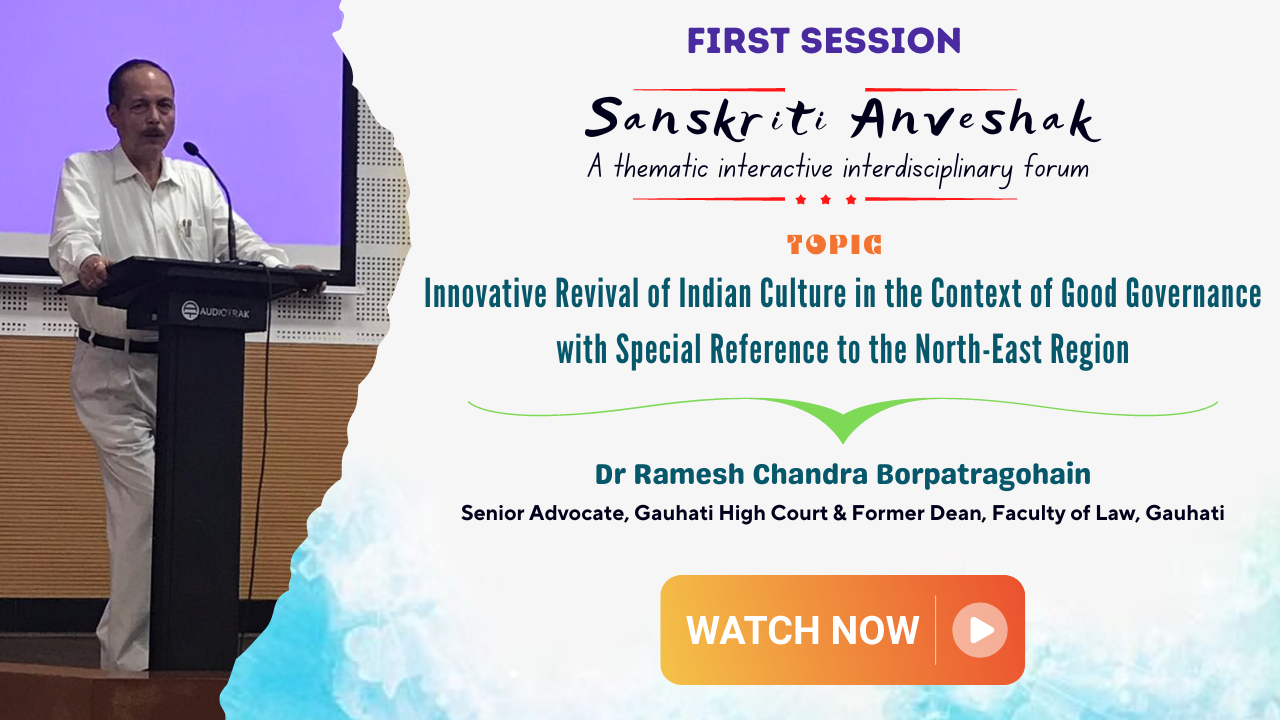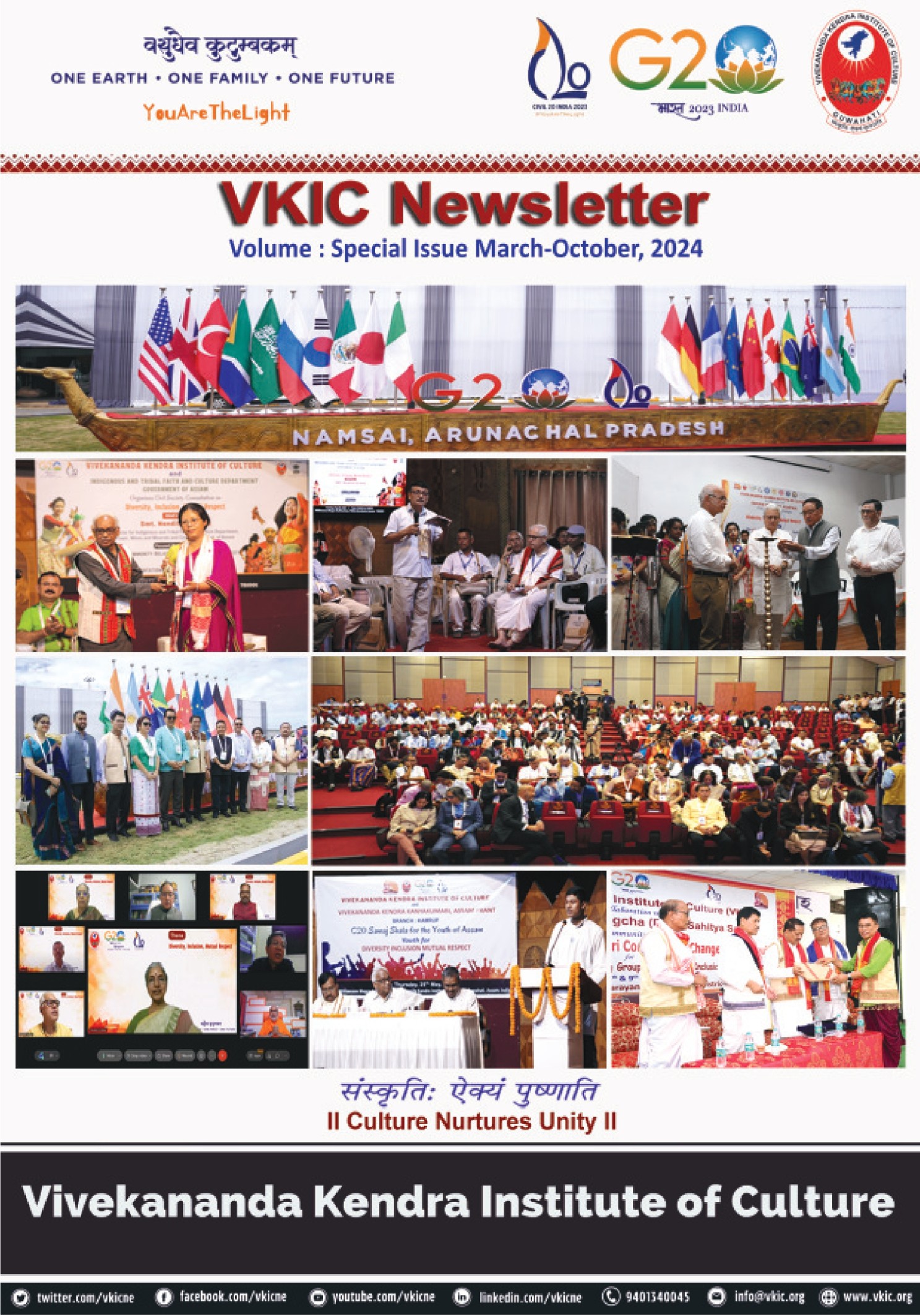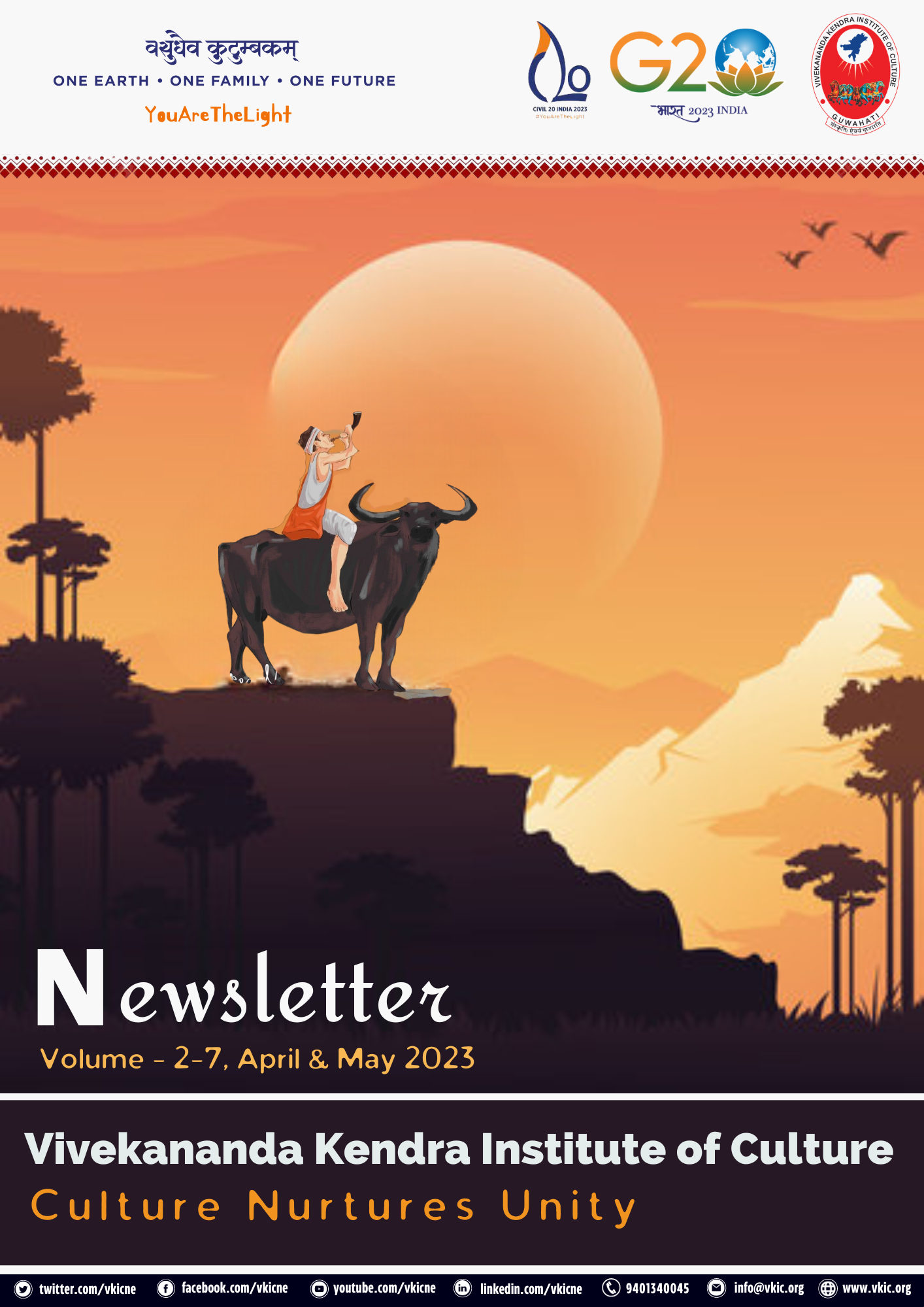Vivekananda Kendra Institute of Culture (VKIC) in collaboration with Gauhati University had organised Sanskriti Anveshak, the interdisciplinary interactive forum of VKIC on the theme “Governance for Coexistence, Harmony and Progress – Traditions and Institutions of Northeast India”. Dr. Parimal Ch Bhattacharjee, Director,VKIC, while welcoming the gathering spoke on the work of VKIC and on the theme.
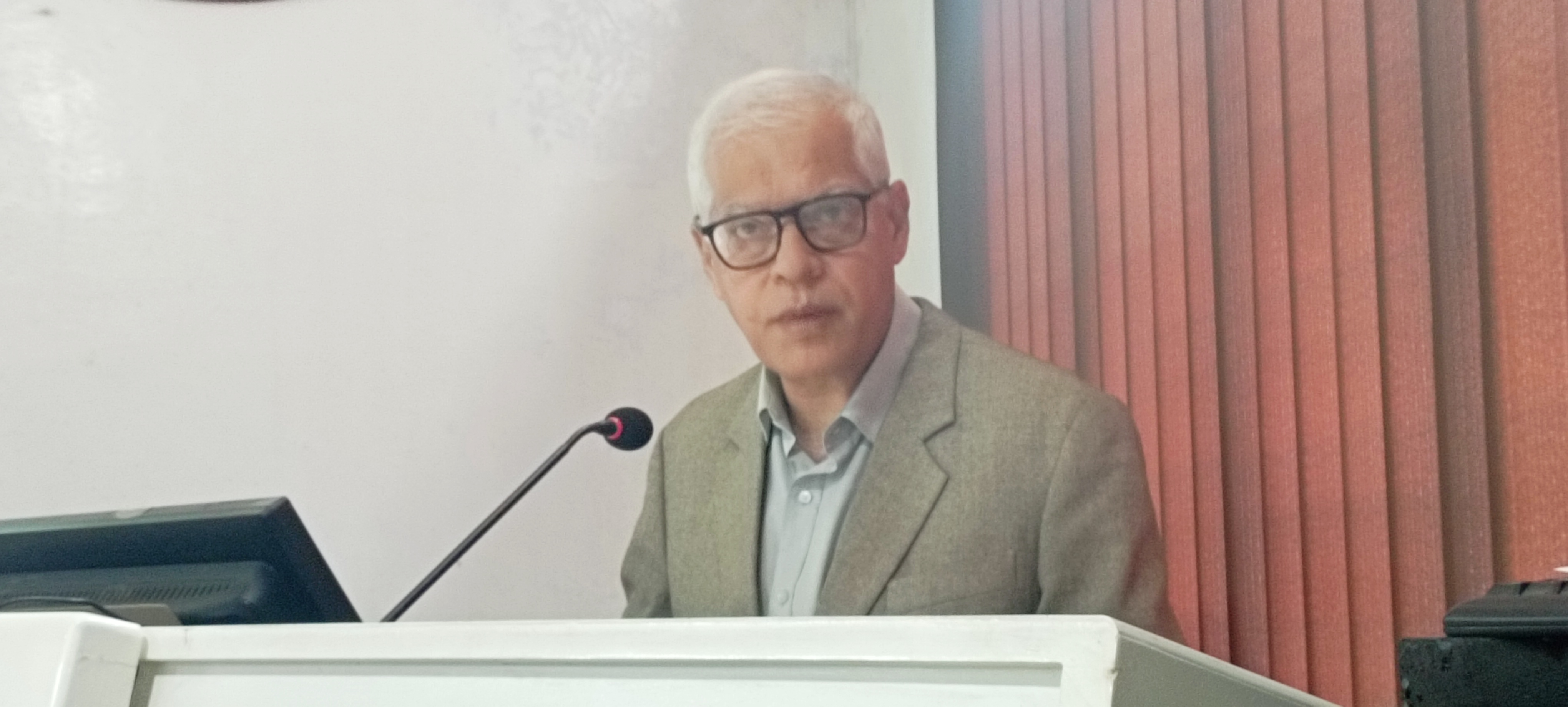
The first session of the Sanskriti Anveshak Series was held on 20th December, 2022 and was delivered by Dr. Ramesh Chandra Borpatragohain an eminent Senior Advocate, Gauhati High Court & Former Dean, Faculty of Law, Gauhati on the topic ‘Innovative Revival of Indian Culture in the Context of Good Governance with Special Reference to the North-East Region’. He vividly described the two laws of the Universe- Natural Law and the Law of Matter which is all about the manifestation of the energy of the Supreme Consciousness. Dr. Borpatrogohain said that, “During the Vedic period, the laws of the spirit were well structured, maintained, which percolated down through the Guru-Shishya tradition and relationships. These laws could not only bind the people together but also maintained and enhanced the reservoir of knowledge”. He added that the Bharatiya Sanatana Dharma or Religion of Human is a Dharma is not created by the ‘Creator’ but by the human being as a way of life and is respected and studied by the western scientists like Einstein, Copenheimer, et al as they have deep respect for this Dharma.
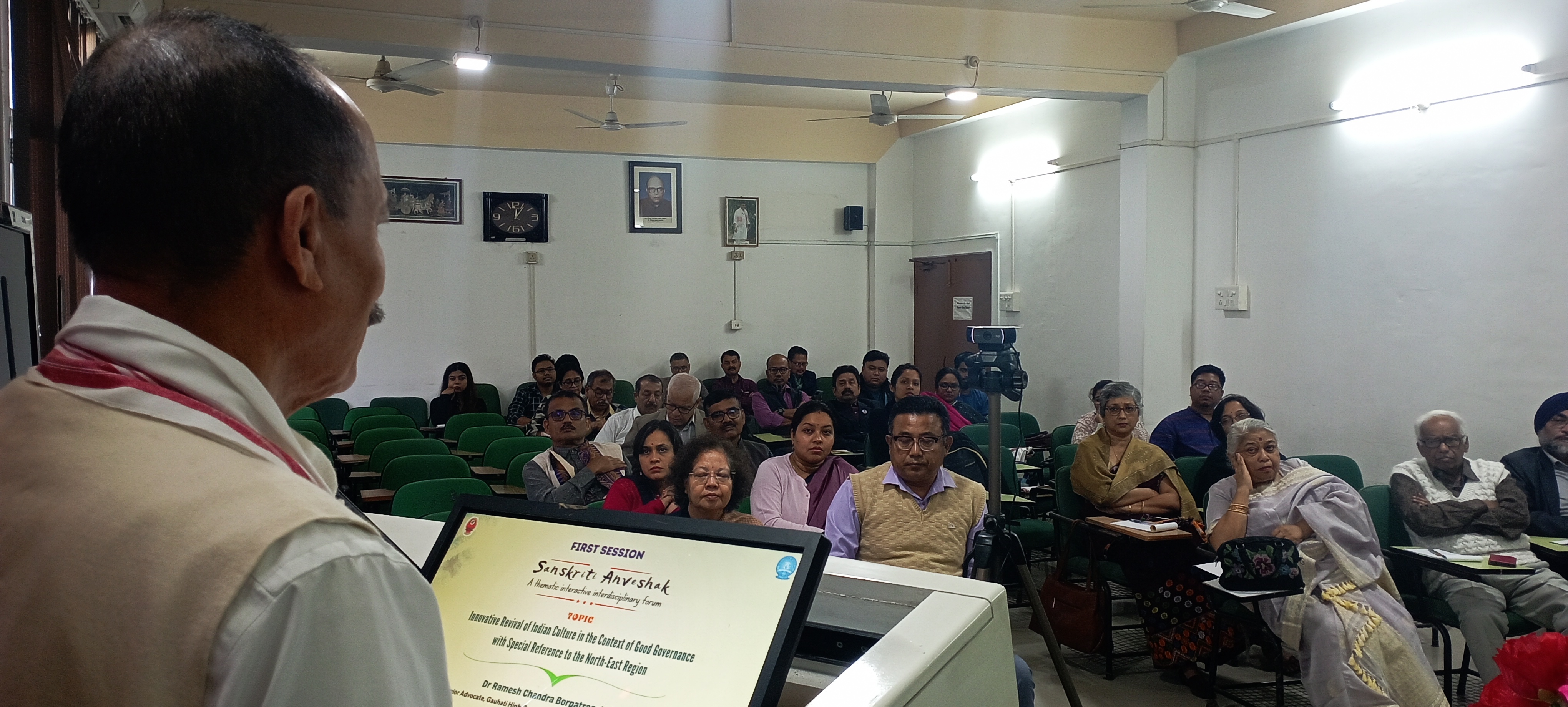
Dr. Borpatrogohain said that in the contemporary society bifurcating the law of spirit, no society can thrive. Law can never resolve any issue on its own without the society playing a significant role. In Indian Culture, Dharma is not religion but the law which is eternal in nature. He further said that religion divides but Dharma unites citing various examples from Manu to compare the law during the Vedic period and in the present social milieu. For instance, astronomy, medicines, engineering etc were developed by the Rishis since Vedic times and were studied by disciples around the world during that time and even at present.
Even after 75 years of Independence, Indian Constitution is anglicized as most of the laws and rights are derived from various constitutions of the world like, USA, England, Ireland, Canada, Australia, etc. The anglicized law is creating drought in our rich culture. Here, the speaker brought into the light the book of Justice B.L. Hansaria, ‘Does India Need a New Constitution’ as Indians are still not acclimatised with the perceptions brought into our constitution. A Constitutional Review Commission was formed during the tenure of Atal Bihari Vajpayee where Justice Verma was Chairman of the Committee, but it did not take any shape.
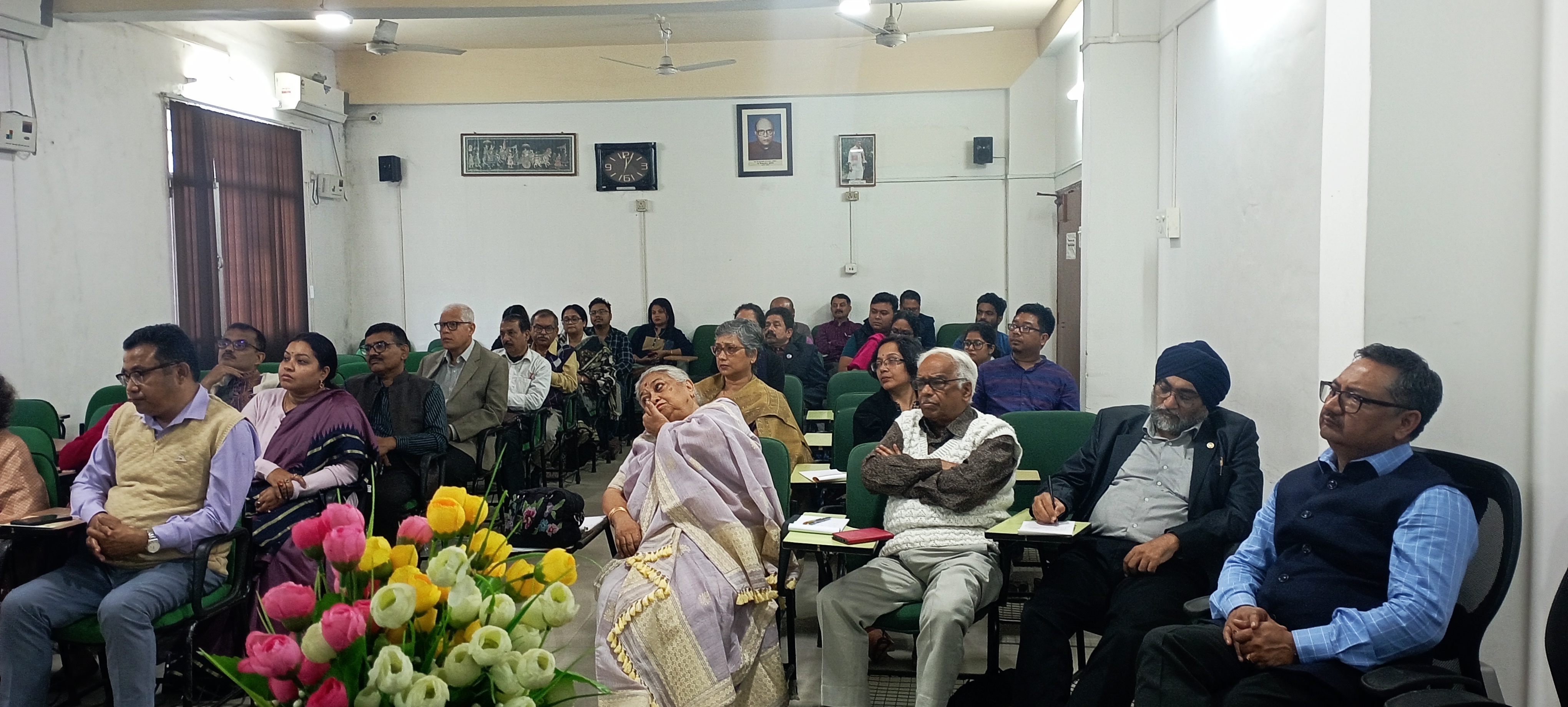
The modern law is based on science, logic, intellect and reasoning which is guiding today’s governance. What is lacking in today’s Governance? Can we trace back to the Natural Law from where the Customary Laws of the various communities of Northeast are derived from. Citing the example of Kebang of the Mising community and the various other indigenous groups of the Northeast, the speaker said that still today these customary laws play a very significant role in the society in resolving any a social issue. Referring to the customary law documentation work done by the Law Research Institute of the Gauhati High Court, he said that it is now available in written form and if we could incorporate the customary laws with innovations in the present constitutional laws, the society will develop in the real sense in harmony with both the Natural and Material Law.

